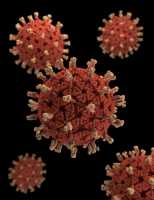Author Interviews, Cannabis, JAMA, OBGYNE, Pediatrics / 08.03.2021
THC Concentrated and Long Lasting in Breast Milk
MedicalResearch.com Interview with:
Erica M. Wymore, MD MPH
Assistant Professor, Neonatal- Perinatal Medicine
Department of Pediatrics, Section of Neonatology
University of Colorado School of Medicine
Children's Hospital Colorado
Maya Bunik, MD, MPH | Professor, Pediatrics
Medical Director, Child Health Clinic, Primary Care | Breastfeeding Management Clinic
Adult and Child Consortium for Health Outcomes Research and Delivery Science (ACCORDS)
School of Medicine| University of Colorado Anschutz Medical Campus
Children's Hospital Colorado
MedicalResearch.com: What is the background for this study?
Response: Marijuana legalization has been increasing in the United States, with increasing consumption of marijuana products. Currently, the American Academy of Pediatrics (AAP), American College of Obstetricians and Gynecologists (ACOG) and Academy of Breastfeeding Medicine (ABM) do not recommend marijuana use during pregnancy or lactation due to concerning though limited data on the effects of perinatal marijuana exposure.
As there has been increasing prevalence of women using marijuana during pregnancy due to legalization and perceptions of safety, we sought to determine the duration of THC excretion in breast milk among women who had evidence of marijuana use at delivery and abstained post-partum. (more…)








